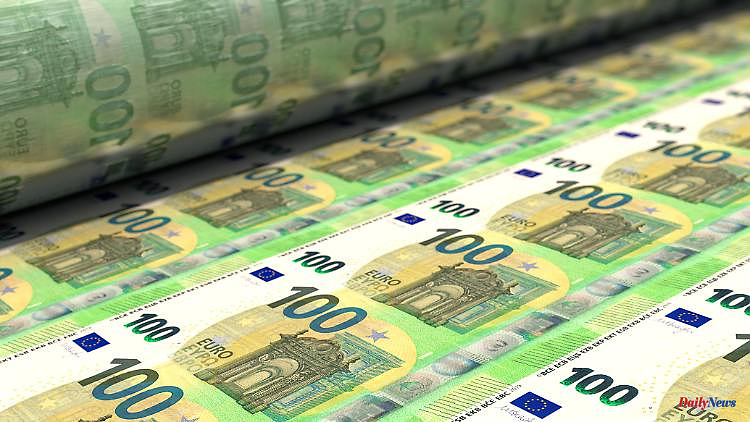Inflation isn't just a concern for many consumers. Economists and central bankers are also worried about whether and how price increases can be brought under control. Oliver Rakau, Germany's chief economist at the economic research and consulting institute Oxford Economics, sees things differently. In the ntv.de interview, he explains why inflation is likely to fall below the target of two percent again next year.
ntv.de: Inflation in the euro zone rose last month to its highest level in 40 years at 7.4 percent. There doesn't seem to be an end in sight. According to surveys, rising prices have become the biggest concern of German consumers. How do you think inflation will develop?
Oliver Rakau: We assume that inflation will remain high in the coming months and may even rise further. Inflation rates should fall towards the end of this year and then fall significantly in the coming year.
What does that mean in concrete figures?
In the second half of 2023, inflation is likely to fall back well below the two percent mark, which the ECB is aiming for as a medium-term inflation target.
Many economists believe that inflation will remain high for a long time to come and will be difficult to combat because not only are energy prices rising, but also the core inflation rate due to second-round effects. What makes you think the price hikes will come to an end any time soon?
On the one hand, we assume that the inflation drivers on the supply side, i.e. energy prices and the bottlenecks caused by disrupted supply chains, will ease. On the other hand, pressure from the demand side will ease at the same time. Because of the poor economic development and the already sharp rise in energy prices, consumers have less money for consumption and companies for investments. Therefore, price increases will be more difficult to enforce.
Aren't you afraid that the notorious wage-price spiral will set in?
The danger is there, but I don't think it will be great in the next few years. At IG Metall, for example, we are already seeing high wage demands in line with high inflation. We will also see robust wage growth in other sectors. But if the economy continues to weaken and inflation rates fall in the coming year, wage developments will also adjust again. I see no danger of a sustained wage-price spiral.
Critics of the European Central Bank hold the central bank responsible for the inflation, which has increased the money supply so much with the low interest rates and bond purchases that sooner or later prices have to rise sharply. There is this comparison with the ketchup bottle, from which nothing comes out for a long time, but then a lot comes out at once. Is that true?
I can not do anything with that. With its monetary policy, the ECB naturally wanted to increase inflation, which was too low at the time, and in this respect it also had a certain effect on prices. However, the now accelerated development is clearly due to supply effects, i.e. shortages and energy prices, and not to the demand side, which could influence monetary policy. If the central bank were to use monetary policy to drive inflation, this would typically be seen in strong growth in the amount of credit, which is used to fuel consumption and investment. But that is not the case at all in the euro area.
ECB officials themselves have long argued that inflation is only a temporary phenomenon. The central bank has now moved away from this and is preparing a corresponding change of course. Do you think this is a mistake then?
I think it's right that the ECB wants to take interest rates out of negative territory and stop buying bonds. According to our forecasts, too, inflation will not fall back to the extremely low levels that have necessitated this extraordinarily loose monetary policy. This is prevented by various developments such as the transition to a climate-neutral economy and long-term cost increases due to CO2 pricing. A first, quick rate hike is also an important signal to the financial market that the ECB is taking the situation seriously and is ready to act. However, the market assumes that several interest rate hikes will follow in the coming year. I think that's a misjudgment.
Do you see a risk that the ECB, after hesitating for a long time, will overshoot its target with too many interest rate hikes under the impression of the currently high inflation rates?
I see the risk, especially since the financing conditions, especially in the economically weaker euro countries, have tightened noticeably more than in Germany, for example, in anticipation of the upcoming ECB change of course. So companies and banks are finding it harder to get money - which is exactly what the interest rate hikes are supposed to do. The central bank must therefore be careful not to put too much strain on the economy in these countries at the very moment when demand is likely to be hit hard anyway.
Myth Oliver Rakau sprach Max Borowski.












